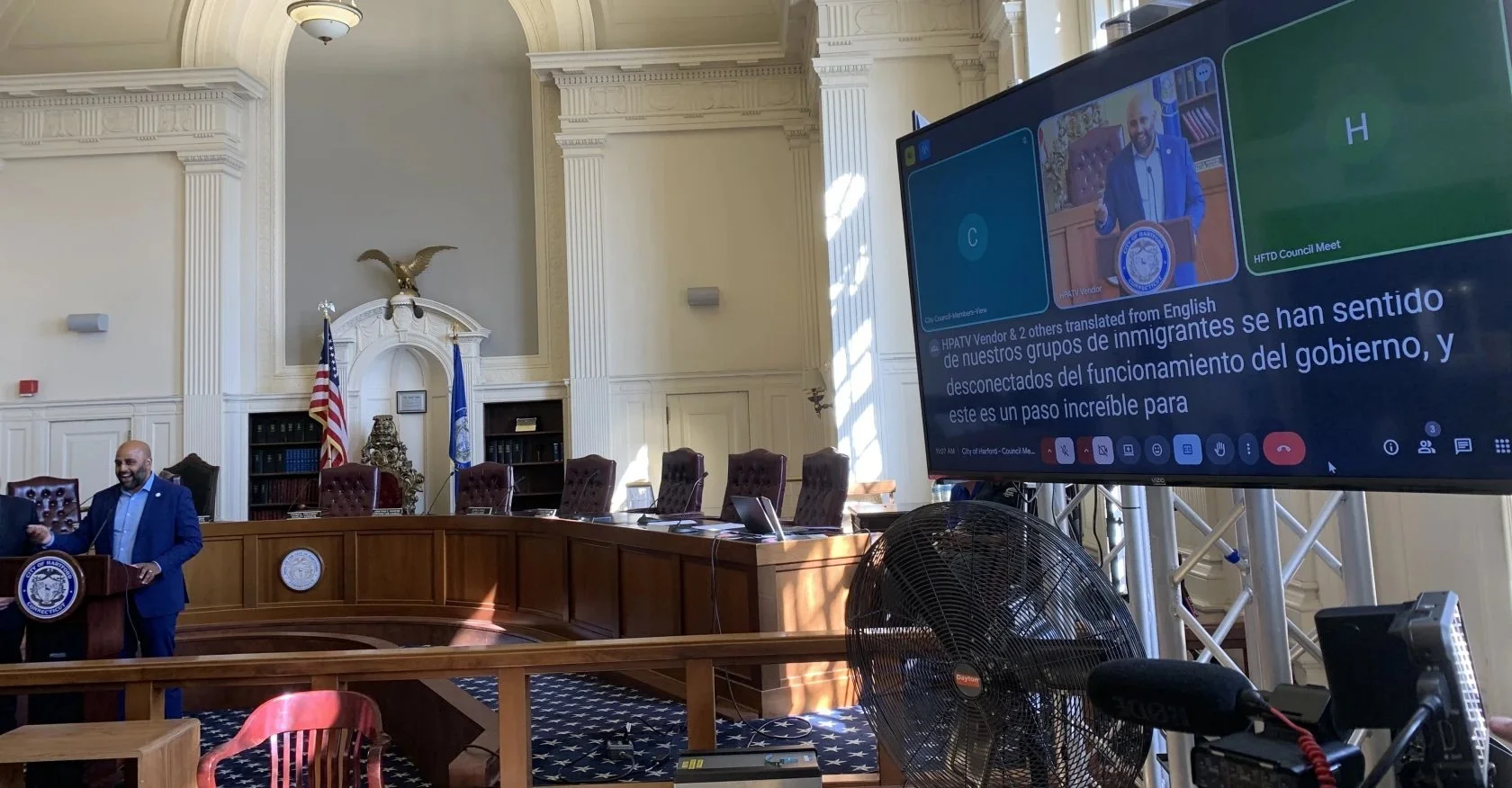HARTFORD PARTNERS WITH GOOGLE TO PROVIDE AI TRANSLATION SERVICES
DOES HARTFORD REALLY NEED AI?
Kenneth R. Gosselin/Hartford Courant/TNS
Earlier this month, Mayor Arunan Arulampalam announced Hartford’s partnership with Google Public Sector to offer real-time and AI enabled translation services for city council and Board of Education meetings. While the program may be well intended, we are a little skeptical.
With a large immigration population and nearly 50 languages spoken just within Hartford, the resources are designed to enable non-English speakers to more readily participate in our government. The translation service arrives as a part of the city government’s migration to Google Workspace from the Microsoft Suite platform and is projected to save Hartford $2.1 million over the next five years, as well as reportedly make up for human error. Cameron Groves, Google’s Public Sector Director shares, “The future of government services will be defined by personalization and equitable engagement for all residents. Google Cloud’s innovative technology, such as Translation AI is directly enabling this transformation and cities like Hartford are leading the way.”
While AI is theorized to be more effective and frugal, it is possible that an algorithm might miss the nuances that human language and emotion can convey. Language comes with dialects and different colloquial sayings depending on the region and without an actual human to translate the concerns of Hartford constituents, there might be a lot lost in translation and at the cost of taxpayer dollars.
Connecticut also has a history of investing in multi-million dollar projects that amount to nothing. Although the program may seem beneficial on the surface, it is political at its core. Not only is the AI program potentially pushing real life translators out of their jobs, the partnership with Google is allegedly connected to the internet conglomerate’s investment in a $90 million AI center near Dunkin’ Park, the city’s minor league baseball stadium. Growing concerns around the safety of AI also make it hard to celebrate this partnership. With an overwhelming surge in immigration enforcement across the state, the dangers of using AI for surveillance is at an all time high. Not to mention, its damaging effects on the environment, as well as how AI centers disenfranchise communities of color. The proposed technological innovations may not be as equitable as Google proclaims.
Introducing AI into Hartford might be more harm than good, but only time will tell.
The services became available on October 14.


